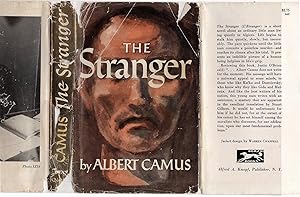

But neither could they be satisfied with ideas whose connections with actual conduct would be only tangential and general. The world of action, to them, has not meant an escape from the world of thought, as it has to some of their elder brothers. In a bald and clumsy summary, this is what Albert Camus had to say when he was asked to lecture in New York on the subject of "The Crisis of Man." Those who heard him speak had no doubt that he had the right to say "we." His was the voice of a whole generation of Europeans, and more especially Frenchmen, who, caught in a struggle that was both senseless and inescapable, have done more than any accepted notion of duty or "historical task" could ever have required of them, with no other moral aid but the quality of their despair. And we want the Reign of Terror to come to an end. Any such ideology spells terror and murder. That is why we now reject any political ideology which raises global claims on human life. We were against terror because terror is the situation where the only alternative is to kill or be killed, and communication among men becomes impossible. But if we believe that to be optimistic about human existence is madness, we also know that to be pessimistic about man's action among his fellow men is cowardly. There is another thing we know, and this is that we still cannot accept any optimistic view of human existence, no "happy end" of any kind. Because if all there is to the problem of man is a "historical task" of some kind, then man is nothing but the raw material of history, and anything can be done with him. Anyone who speaks of human life in terms of power, of efficiency, of "historical tasks," is like Hitler: He is a murderer. The first is that the poison that was in Hitler has not been eliminated.

And now that Hitler has disappeared, we know a few things. We fought Hitlerism because it was unbearable. But what was happening came from man himself. Had the problem been that of the failure of a political ideology, or of a governmental system, it would have been simple enough. Confronted by Hitler's terror, what values did we have that could comfort us, and which we could oppose to his negation? None. The world in which we had to live was an absurd world, and there was nothing else, no spare world in which we could take refuge. Nothing but the stubborn negation into which we had been forced from the beginning. Born and brought up in such a world, what did we believe in? Nothing. After which, we had the Second World War the defeat Hitler in our towns and homes. This is what we got, in the way of an education. Then we had the Ethiopian war the Spanish war Munich. When we were adolescents, we had the Depression. We were born at the beginning of the First World War.


 0 kommentar(er)
0 kommentar(er)
